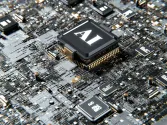The Check redefines security with biophysical tech
Technology firm is steering the security and health data verification industry.
The Check’s advanced biophysical technology not only ensures unparalleled accuracy and reliability but also addresses critical market needs and challenges, particularly within the realms of banking, healthcare, and e-commerce.
Kelvin Wee, the Chief Operating Officer, explained, “We employ focus groups and conduct extensive experiments to gather health data points from a variety of sources, including Apple Watches and Garmin devices. This ensures that our technology can accurately authenticate individual identities based on biophysical data.”
Initially focusing on the B2B sector, The Check aims to revolutionise how businesses, from e-commerce platforms to private banks and the healthcare sector, approach authentication and validation.
Wee emphasised the technology’s ability to address the pressing issues of today’s authentication methods, stating, “Our pioneering technology goes beyond traditional biometrics, incorporating health data points for a more comprehensive approach to validation and disease prevention.”
The introduction of The Check’s technology comes at a time when the Singapore market is navigating the challenges of BYOD (Bring Your Own Device) and the integration of smart wearables into everyday life.
Wee acknowledges these hurdles, particularly the limited penetration of smart wearables, which are crucial for the technology's authentication processes. “Our vision is to democratize access to smart wearables, enabling secure and reliable authentication for everyone,” he asserted.
Wee also shared insights from case studies that demonstrate the technology's impact across the globe, including its integration with private banks and public clinics. These examples illustrate the seamless and secure transactions facilitated by The Check's technology, offering a glimpse into the future of authentication and health monitoring.
“Our case studies reveal the efficiency and enhanced security our technology brings to various sectors, providing a viable alternative to conventional security measures like fingerprint scanning,” Wee added.



















 Advertise
Advertise






Commentary
The festive season is a revenue moment – don't let friction or fraud derail it
All that glitters: Is luxury losing its shine, or finding a new one in Asia?